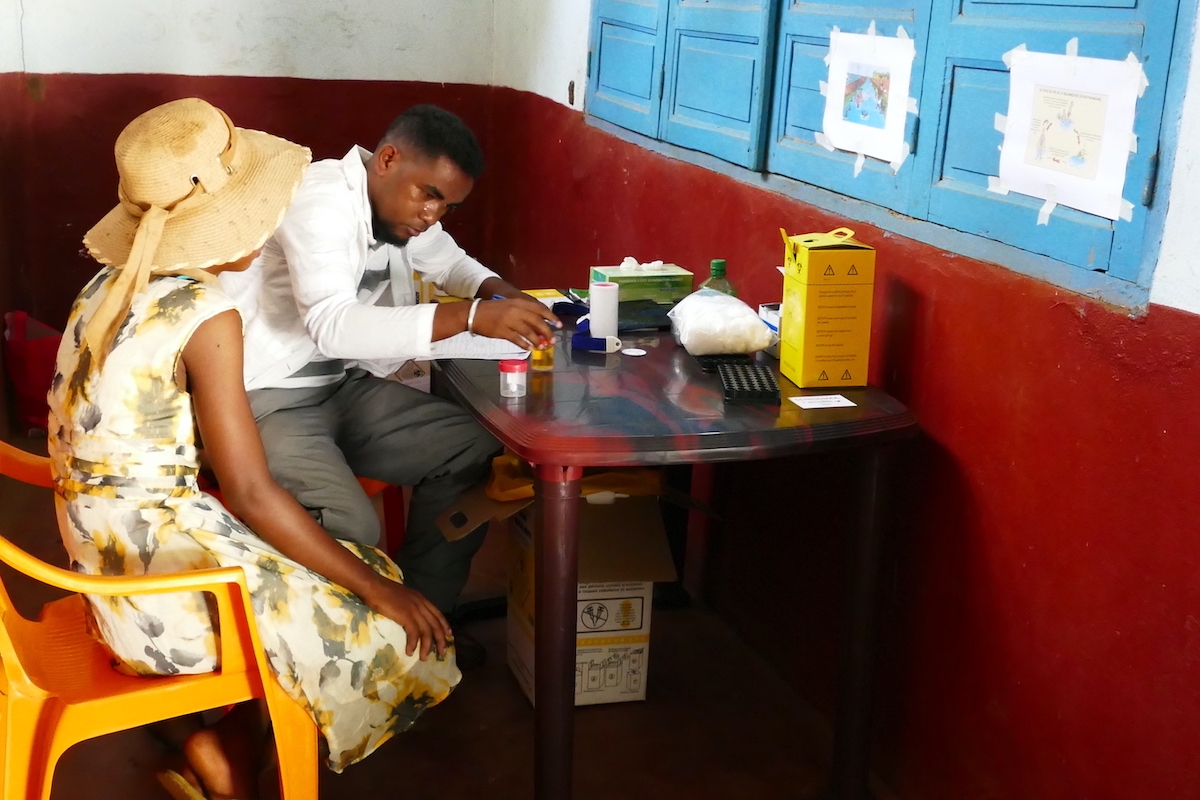Improved diagnostics for schistosomiasis and epidemiology -SCHISDIMA
Diagnostic tools adapted for poor resources settings are often lacking, especially for diseases of poverty such as schistosomiasis. For this reason, schistosomiasis is often empirically diagnosed since to date no point of care strategy for its diagnosis has been implemented in endemic countries. Since 2008, a point-of-care diagnostic test (POC-CCA) detecting Schistosoma derived circulating cathodic antigen (CCA) in urine is commercially available. The project SCHISDIMA (Improved diagnostics for schistosomiasis and epidemiology) aims at defining sensitivity and specificity of the POC-CCA in different epidemiological groups in Madagascar, where schistosomiasis is highly endemic and no data regarding the performances of the test are available.
Partners:
University of Fianarantsoa, University of Antananarivo, Centre d’Infectiologie Charles Merieux (CICM), University of Leiden.
@BNITM Eva Lorenz - Anna Jäger
Funding:
German Center for Infection Research (DZIF)
Duration:
June 2018 - April 2021 -CLOSED
















